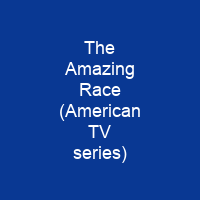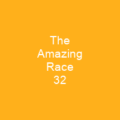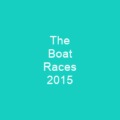The Amazing Race is a reality television competition, typically involving eleven teams of two, in a race around the world. The race cycle is divided into a number of legs, normally twelve; each episode generally covers the events of one leg. The first team to arrive at a Pit Stop is often awarded a prize such as a trip, while the last team is normally eliminated from the race. The final leg of each race is run by the last three remaining teams, and the first to arrival at the final destination wins the show’s prize, US$1 million. The 32nd season premiered on October 14, 2020, while filming for the 33rd season has been suspended due to the COVID-19 pandemic.
About The Amazing Race (American TV series) in brief

The events of the races are generally edited and shown in chronological order, cutting between the actions of each team as they progress. Footage from the races is interspersed with commentary from the individual teams or members recorded after each leg to give more insight on the events being shown. Some races have featured double-length legs, where the teams meet the host at what appears to be a Pit stop, only to be told to continue to race. Some legs are non-elimination legs, with teams given a chance to rest and recover before starting the next leg twelve hours later. The teams are required to pay for all expenses while traveling from a small stipend given to them at the start of each leg. The only exception is air travel, where teams are given a credit card to purchase economy-class fares. Teams are generally free and sometimes required to engage locals to help in any manner to decipher clues and complete tasks. Tasks are typically designed to highlight the local culture of the country they are in. Such tasks include: Teams are penalized for failing to complete these tasks as instructed or other rules of therace, generally thirty minutes plus any time for the infraction. Such penalties may be enforced while teams are racing, when they arrive at the next race or at the Pit Stop, at the end of the leg. More recent seasons have been edited to split-screen footage of two different teams in simultaneous actions or two simultaneous actions.
You want to know more about The Amazing Race (American TV series)?
This page is based on the article The Amazing Race (American TV series) published in Wikipedia (as of Dec. 21, 2020) and was automatically summarized using artificial intelligence.







